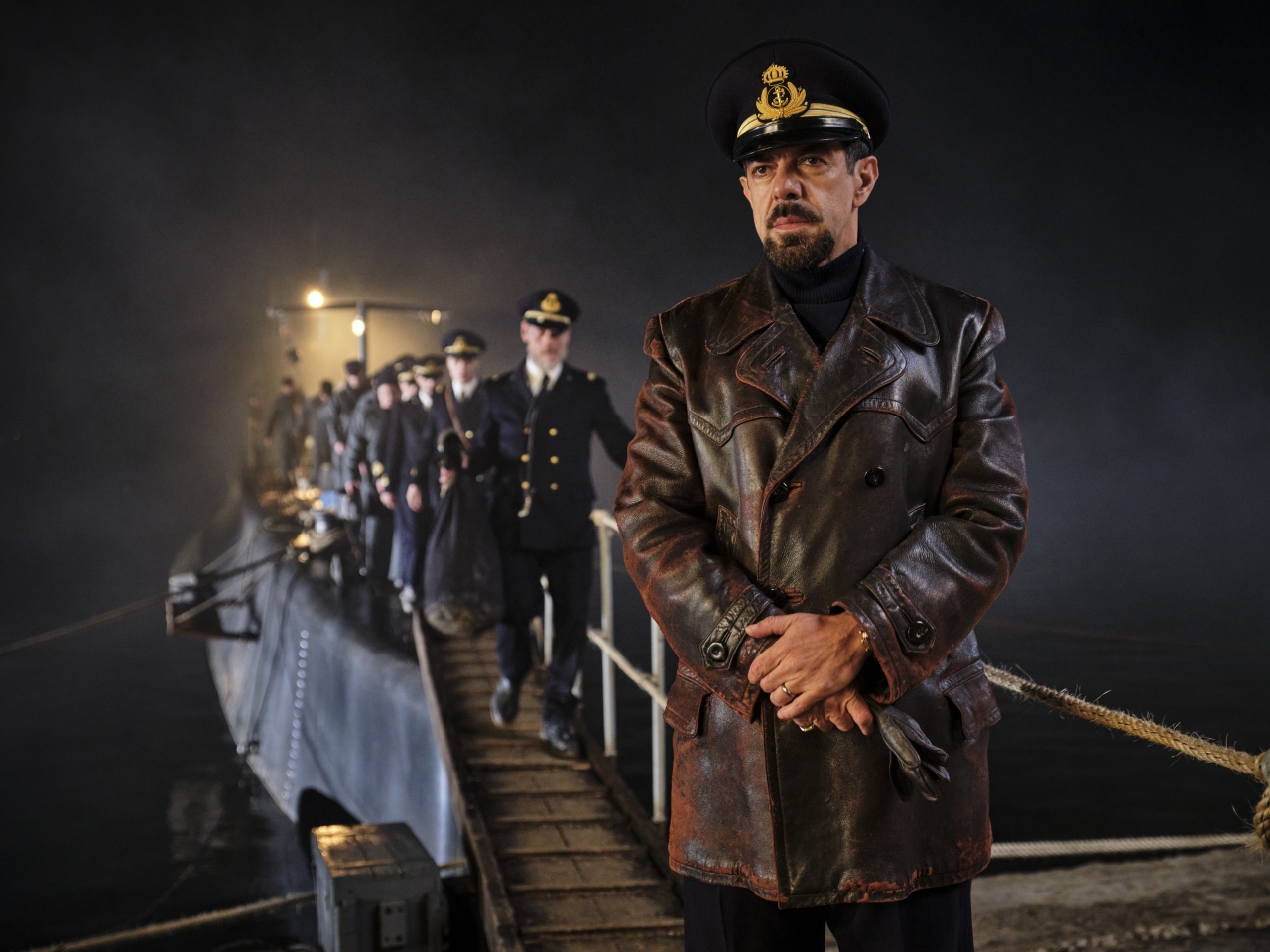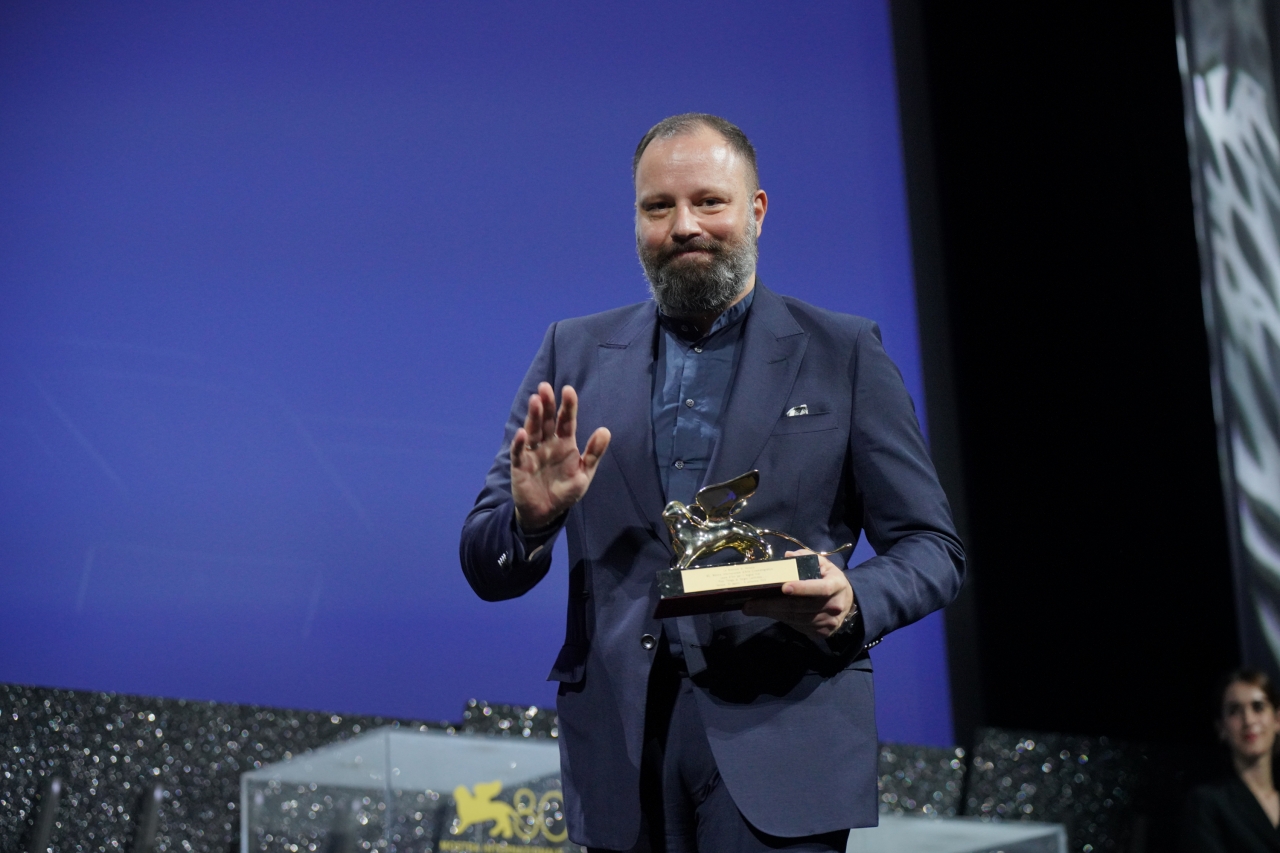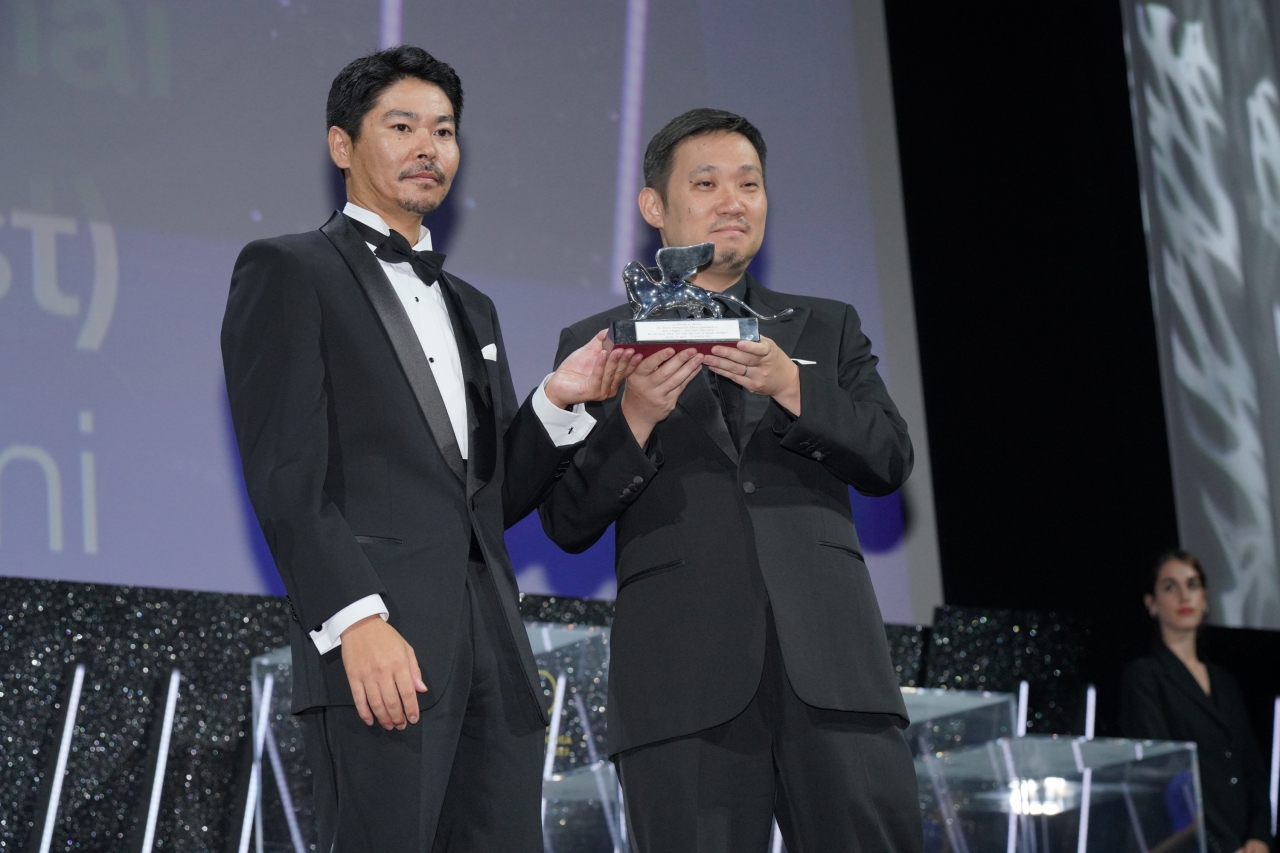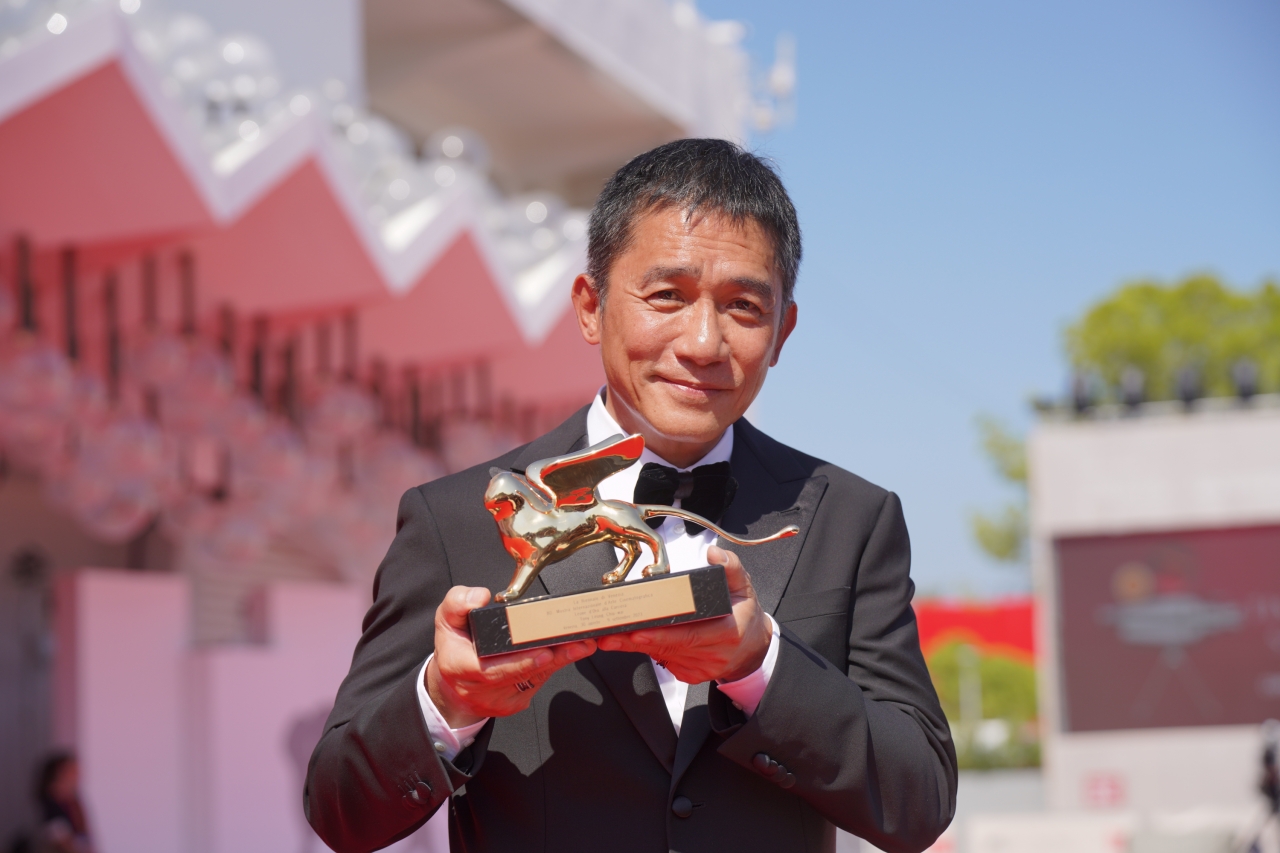
The Venice International Film Festival, the world's oldest and most prestigious film festival, took place from Wednesday, August 30 through Saturday, September 9 on the Lido Island in Venice, Italy.
This year, there was much concern in and around Venice due to the Hollywood production "walkout" that began with the Writers Guild of America (WGA) strike. The Venice Film Festival has a stronger bias toward Hollywood films than Cannes or Berlin, and Hollywood tends to strategically place its winter awards season favorites at the festival. But the festival was in trouble before it began, with Luca Guadagnino's Challengers canceled as the opening film due to the strike, and other star directors and actors unable to attend.
But once the festival got underway, the worries were unfounded. This year, Venice was able to put together a great program of films that was both topical and workmanlike (for better or worse), with a better selection than its rival, Toronto. (The Toronto Film Festival, which takes place a week after Venice, was hit hard by the Hollywood strike this year and had trouble getting films.)
From the opening night shakeup to the honors to the return of controversial directors, Cultura was on the ground at the 80th Venice Film Festival.

Venice Film Festival on Lido Island
If you've seen and heard of Venice, a city in northeastern Italy, you may be surprised to learn that it hosts a film festival. Venice is roughly divided into two parts: the landlocked New City, centered around Mestre, and the Old City, which is the waterfront image that comes to mind when we think of Venice. The main island, which is located in the center of the old city, is what we usually think of as Venice, which is always crowded with tourists and, most importantly, is car-free. There are also no theaters or facilities to accommodate the crowds that come from all over the world. So, of course, you can't have a film festival here.
Lido Island, where the festival is held, is a short vaporetto (water bus) ride from the main island of Venice in the old city center. The island of Lido is very different from the touristy main island of Venice. First of all, unlike the main island, which is dominated by canals, it is accessible by car. The island itself is large enough to have a bus line, and the ground is much more walkable than the cobblestone streets of the main island. It's also a bit further away from the main tourist areas of Venice, so it has a more relaxed, small-town Italian feel. Especially during the film festival, all the main events take place in a limited space in the center of Lido Island, which is only accessible to those involved, so it's a unique space that takes place in Venice but doesn't feel like Venice at all.
During the festival, a special route, the MC (Mostra del Cinema, Film Festival), runs between the main island of Venice and the Lido, and unlike other water buses, it uses the Lido Casino dock, which is located right in front of the theaters. The badge includes with a transportation ticket for the special route and the buses on Lido Island.

A ticketing site glitch and an unusual apology
As usual, the festival was plagued by ticketing problems right from the start. It's not unusual for the ticketing website to crash every year, but this year there was a strange error on the ticketing page for badge holders. Normally, badge holders have 20 minutes to purchase tickets after successfully logging in. However, this year, after selecting one ticket, they were logged out when they tried to select the next ticket.
I also encountered the same problem on the first day of sales, August 24, when I purchased tickets to the opening film and was logged out when I tried to purchase the next ticket. When I tried to log back in, fortunately or unfortunately, the whole server crashed, which gave me a bit of a break, so I asked around while the server stabilized and heard that my friends, a German critic couple, were able to get all their tickets. I asked them what their secret was and learned how to get all the tickets without logging out.
In that short time, the method of picking tickets spread through the European veteran journalist-critic chat rooms, and those who were quick enough to get the information were able to book all the tickets with time to spare. I also found out on the first day of the festival and was able to book my tickets without a hitch. The problem wasn't resolved until the day before September 4, when tickets went on sale for the last two days of the festival, and in an unusual move, the festival sent an apology to all badge holders. I've had problems with the ticketing site every year, big and small, but this was the first time I've ever received an apology.

The Commander, the opening film about the 'brilliant' fascist Salvatore Todaro
Early on the opening day, I went to the Palazzo del Casino to pick up my badge. The Palazzo del Casino, home to the Press Zone where press conferences and interviews are held, is the latest addition to the Venice Film Festival's state-of-the-art building, which was renovated a few years ago. In addition to the media area, there's also a movie theater, the Sala Casino, which is always lively and full of life.
After picking up your badge at the Palazzo del Casino, look to your right and you'll see the festival's main venue, the Palazzo del Cinema, with the flags of the countries of origin of the invited films flying. This year, no Korean films were invited to Venice, so neither the Korean Film Council nor other Korean media traveled to the festival, so I couldn't help but feel a sense of emptiness in the crowd when I saw the Palazzo del Cinema without the Korean flag.
Another feature of the Venice Film Festival is that there are one or two press events where you can see the films before the official premieres, so it's easy to watch films compared to other big film festivals, and if you move around diligently, you can see the major works without missing them. The opening film is also available for an early morning preview on opening day.
This year's opening film is Edoardo de Angelis' The Commander. Challengers, directed by Luca Guadagnino, who won last year's Best Director award for Bones and All, was originally scheduled to open the festival but was canceled in the wake of the Hollywood strike, and The Commander was hastily selected as the opening film. The Commander is a drama about naval commander Salvatore Todaro and the crew of his submarine, the Capellini, set in September and October 1940 during the early days of World War II. The film is notable for its focus on the Italian military in World War II, showing the bravery of the Italians in the first half of the film and the humanity in the second half when they rescue Belgian sailors who were helping the British, despite their neutral status. Like most war movies, The Commander is a film that instills a sense of pride in the Italian people. Perhaps that's why the actual reaction on the ground was somewhat favorable to the Italians. But overall, it was questionable whether the film was worthy of opening night.
Pierfrancesco Fabino's performance as Salvatore Todaro, the symbol of the 'good' fascist, was brilliant. But it was no more than that. The characters in the movie are monotonous and boring, and the whole story unfolds without much novelty. The classical cinematography captures the events that take place in the submarine, but combined with the clichéd message, it seems rather boring. The humanitarian ending is not sharp enough, and the thematic awareness that leads to the humanitarian ending is bland. I understood the rush to replace the opening film with The Commander with its Italian flavor, but I still wondered if it was the best choice.

Dogman, The Palace and Coups de Chance at the center of controversy
This year's Venice Film Festival welcomed Luc Besson, Roman Polanski and Woody Allen to Venice with Dogman, The Palace and Coup de Chance respectively, all of whom have been embroiled in sexual scandals, but only Besson was invited to compete. After being cleared of all charges against him, Luc Besson returned to the festival four years after Anna to showcase his directorial skills with Dogman.
Dogman is told in flashbacks through conversations between counselor Evelyn (JoJo T. Gibbs) and Doug (Caleb Landry Jones) in a prison cell. It shows how Doug, who grew up emotionally abused by his family, gave up communicating and empathizing with humans to live with dogs, and how he became a monster. One by one, Luc Besson sensitively connects Doug to the dog and God, and in the end, he creates his antihero with a sophisticated image using the shadow of the cross.
Edith Piaf's score, used at key moments, is exquisite, and Caleb Landry Jones, who won Best Actor at Cannes two years ago for Nitram, delivers a dominant performance that deserves a shot at the Volpi Cup. Overall, however, I found the film too reminiscent of Todd Phillips' The Joker, and its use of animals, especially dogs, drew comparisons to Kim Tae-gon's The Escape: Project Silence, which also premiered at Cannes this year, but Dogman is the more experienced director.
Roman Polanski, who unlike Luc Besson was deported from the United States after serving a prison sentence for child sex offenses, also returned to Venice with a new film four years after An Officer and a Spy. Four years ago, Polanski was still a troubled figure, but at least An Officer and a Spy was a well-made film that won the Venice Grand Jury Prize and the Cesar Award for Best Director. But The Palace, which premiered out of competition, will likely remain a stain on Polanski's filmography.
The Palace is a comedy about the various events that take place in a hotel in the Swiss Alps on New Year's Eve. The film uses crude humor codes and shallow satire through the structure of the hotel, and it is unclear what Polanski intended. Before the first screening, there was a lot of interest in The Palace. Everyone hates Polanski, but expectations for his work are always high, so tickets were hard to come by. But after the movie, everyone left with a sneer on their faces. Unusually for a director with such a long career, The Palace currently has a 0% rating on Rotten Tomatoes with 14 reviews.

Woody Allen returns to the Out of Competition section with his 50th feature and first French-language film, Coup de Chance. In a way, Woody Allen is the most controversial figure in Venice this year. There were protests against him at the premiere because he still hasn't been cleared of the child molestation allegations made by Dylan Farrow. At the same time, inside the theater, the audience cheered for the still-unconvicted Woody Allen with only the Windsor typeface in the opening credits, and at the end of the film, the audience showed their support with an even bigger standing ovation.
The theme that runs through the film is 'coincidence'. The movie opens with Fanny (Lou de Lazoux) and Alain (Nils Schneider), high school sweethearts, meeting on the streets of Paris. Fanny is married to Jean (Melville Poupot) and Alain is divorced, but the two become close from the first scene, and a shamelessly sweet romance unfolds between Fanny, Jean, and Alain.
Coup de Chance may not be his best film, but it's certainly one of his best in recent memory. It wasn't the comedy that Woody Allen was known for, but it was a drama with a love triangle and a thriller, and it still had his style and humor.

An 'Innocent' Odyssey of an Adult Child
The Golden Lion Goes to Yorgos Lanthimos' Poor Things
Apart from the opening night films, the film program was largely unaffected by the Hollywood strike. The lineup of films in competition that followed more than made up for the loss of The Commander. Leading the way was this year's Golden Lion winner, Yorgos Lanthimos' Poor Things.
Even before the first screening, there was a vibe in Venice that made me look forward to Poor Things. The poster for Poor Things was in a prominent place from the beginning of the festival, and it was one of the most heavily promoted films, with press releases, posters, and premiere tickets being given away before the festival even opened. So I realized early on that Poor Things was going for awards season, and I was really curious to see what Lanthimos would come up with this time. And the result was more than I expected. While Poor Things is full of the usual Yorgos Lanthimos sensationalism and graphic depictions, this time there's a sense of hilarity and playfulness that replaces the melancholy discomfort of Lanthimos' work. Everything in the movie is missing a screw at some point, but these deficiencies add up to a more complete structure.
Poor Things is a black comedy about the coming of age of an 'adult child' Bella Baxter (Emma Stone). When the health of both mother and child is threatened, eccentric doctor Goldwin Baxter (Willem Defoe) makes the bizarre decision to transplant a fetal brain into the mother's body. Instead of a parent, the reanimated 'test subject' Bella is raised by Goldwyn, whom she calls "God." Shunned by the medical community, Goldwyn assigns his only student, Max (Rama Youssef), to observe and document the results of the brain transplant experiment. Max falls in love with the beautiful Bella and becomes engaged to her until Duncan (Mark Ruffalo), an uptight lawyer, enters the picture. Eventually, Bella leaves Goldwyn and Max's arms and embarks on an 'innocent' journey to become her independent self.
The bizarre 19th century Europe, created through the use of a fisheye lens, creates a surreal feeling, ranging from Victorian and Belle Époque to futuristic landscapes. It's a journey to understand the world, but all of these landscapes are deeply distorted.
Throughout the journey, Bella is shown human ugliness in its purest form. The two pillars of the Odyssey are intellect and sexuality. Sex, especially from the beginning of the journey, is the main driving force of the play, which is called “jumping”. Duncan believes he can control Bella and introduces her to all sorts of physical pleasures to take her out of the hands of "God," but as she gradually grows into her own, he becomes dependent on her. Bella never submits to Duncan, but rather conquers him and the many other men who try to win her over, directly calling out the hypocrisy and injustice around her, and the voyeuristic camera in the Paris red light district provides some of the best scenes in the film, illuminating Bella from the male gaze and provoking uncomfortable mockery.
Bored with her relationship with Duncan, Bella becomes interested in philosophy and ideas, especially socialism. She feels compassion for others and fights to make the world a better place. In the process, her unbiased behavior undermines our common sense and breaks through the repressed reality in a Lanthimosian way.
As the director said in his acceptance speech, "Whether in front of or behind the camera, this film is Emma Stone," and it couldn't exist without her. Throughout the film, Stone gives a stunning performance, and she is supported by Mark Ruffalo and Jermaine Defoe. Emma Stone, who worked with Lanthimos in his previous film The Favourite, gives one of her best performances as Bella herself. At the end of the screening, the audience expressed their overwhelming support with a rousing cheer and a "jump" that rivaled any other.

ⓒAndrea Avezz La Biennale di Venezia-Foto ASAC
Winner of the Silver Lion
Ryusuke Hamaguchi's Evil Does Not Exist and Matteo Garrone for The Captain
The Silver Lion went to Ryusuke Hamaguchi's Evil Does Not Exist (Grand Jury Prize) and Matteo Garrone for The Captain (Best Director). Marcello Mastroianni Award for Best New Actor went to Seydou Sarr for The Captain, making it a double win for The Captain.
Evil Does Not Exist, protagonist Takumi (Hitoshi Omika) lives with his young daughter Hana (Ryo Nishikawa) in a beautiful, unspoiled suburb of Tokyo. But when a corporation called Play Mode buys up the city's land, a sense of crisis looms. In order to receive government subsidies after the pandemic, Play Mode wants to use the land as an urban glamping site. A formal public hearing between the company and residents raises issues of nature (water supply) and development (septic tanks). From the beginning of the film, the use of music echoing through the forest creates a sense of grandeur and foreboding. The beautiful nature captured by the camera is bathed in a grayish, dark light, creating an audiovisual representation of the beauty of nature and the threat of evil surrounding it.
The dialogue during the ensuing drive reveals Ryusuke Hamaguchi's organs in full view. During this scene, we learn that Play Mode employees Takahashi (Ryuji Kosaka) and Mayuzumi (Ayaka Shibutani), who presided over the public hearing, are also human beings who feel compassion for the villagers.
With a running time of 106 minutes, the shortest of Ryusuke Hamaguchi's works, the story is essentially a warning against man's disregard and destruction of nature, and makes it clear that evil is real. There is a gray area between all of our judgments, and Ryusuke Hamaguchi calmly captures the subtle cracks in the human condition, presenting yet another layer of confusion by the film's conclusion. Although not the festival's main prize, Evil Does Not Exist won the FIPRESCI Award.

ⓒAndrea Avezz La Biennale di Venezia-Foto ASAC
Mario Garrone's The Captain explores illegal immigration from the perspective of two Senegalese boys, Seydou (Seydou Sarr) and Moussa (Moustapha Fall), who dream of leaving Senegal and becoming pop stars in Europe. Seydou, who dreams of making it as a rapper, works hard in Dakar to save money to leave for Europe. At the market, they hear about the realities of immigrant life in Europe, but they ignore it and eventually leave Senegal. Against all odds, Seydou regrets his decision to leave Senegal, but realizes there is no going back, so he continues on to Europe.
The film deals with the ongoing issue of immigration and is a bit on the loose side in that all the developments go in a predictable direction. However, this is compensated by the technical perfection and the performances of the actors. The cinematography vividly captures the majesty of the vast desert while effectively contrasting the vulnerability of the people. The upbeat traditional African music is emotionally uplifting and sets the tone for the protagonist's journey. Mario Garrone's decision to cast non-professional actors was particularly apt. Seydou Sarr exploded with more emotional range than any veteran actor and won the Marcello Mastroianni Award.

Other winners
The Screenplay Award went to Guillermo Calderón and Pablo Larraín for El Conde, the Special Jury Prize went to Agnieszka Holland's Zielona granica, and the Volpi Cup (Acting Award) went to Cailee Spaeny (Best Actress) and Peter Sarsgaard (Best Actor) for Priscilla and Memory, respectively.
El Conde was memorable in many ways in Venice this year. I had the opportunity to see the film with the director, crew, and cast in the gallery on the opening day as a press event, at the premiere screening the next day, and later that evening at the Variety X Golden Globe Awards Party, where director, Pablo Larraín, was honored with an award.
Pablo Larraín's El Conde is a black comedy full of political metaphors and dense jokes. Pablo Larraín cleverly blends social satire and biography, which he does well, to create up with an interesting story. The story revolves around Claude Pinochet (Jaime Vadell), a character named after the Chilean dictator Augusto Pinochet. This vampire movie is a surprising mix of sharp and absurd, and the plot takes a surprising turn.
El Conde was released on Netflix on September 15, just three days after its Venice premiere. Despite its quick streaming availability, it's a shame, because one of the best things about the production was the sound. From the march that opens and closes the story to the sound of the wind whipping around Pinochet, the exquisitely crafted sound was a powerful addition to the theater. If you're going to watch El Conde on stream, make sure you have a good sound system.

Agnieszka Holland's Zielona granica tells a different immigrant story than The Captain. The title, “Zielona granica”, refers to a forest in the uninhabited area between Belarus and Poland. Zielona granica follows a group of refugees from various countries, including the Middle East and Africa, as they attempt to cross from Belarus into Poland. Their journey to the European Union is uncertain, as they are tossed back and forth in the clutches of Belarusian dictator Alexander Lukashenko.
The camera follows the refugees at their side, all shot in black and white, bringing their plight to life. In this war movie-like film, Agnieszka Holland strikes a balance between fiction and documentary, powerfully conveying the suffering of the refugees and their longing for freedom.

This year's jury, chaired by Damien Chazelle and including directors Jane Campion, Mia Hansen-Løve, Martin McDonagh, Santiago Mitre, Laura Poitras, Gabriele Mainetti and actors Shu Qi and Saleh Bakri, selected a much-anticipated winner, bringing the 11-day festival to a fitting close. In addition, Liliani Cavani, an icon of Italian cinema in the 1970s, and Wong Kar-wai, an icon of Hong Kong cinema in the 1990s, were awarded the Honorary Golden Lion, and Wes Anderson, who made his Venice debut in the Out of Competition section with the 40-minute short The Wonderful Story of Henry Sugar, received the Cartier Special Prize for Glory to the Filmmaker.

The Venice Film Festival got off to a shaky start, but as usual, it ended on a high note. We look forward to next year's Venice Film Festival, when the Hollywood strike is over and everything is back to normal, with Korean films invited and the Korean flag flying at the Palazzo del Cinema on the main street.
Jaewon Sheol is the editor-in-chief of Cultura, a Korean cultural magazine, and the publisher of K-Writer, a Korean-US magazine with offices in both Korea and Los Angeles' Koreatown. He specializes in cultural commentary and has written numerous articles, with a particular focus on the film industry. In 2023, he was appointed as an international voter for the Golden Globe Awards due to his recognized expertise.
Photo Courtesy of 2023 2023 Venice Biennale
* 《Cultura》 2023 October (Vol. 112) *


